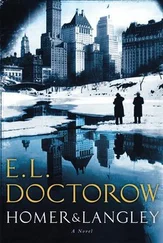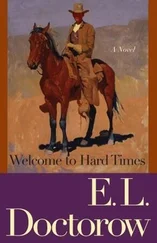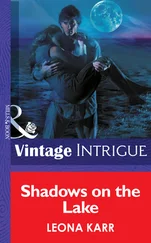I was fascinated by him. Sucking his teeth and never speaking more than he had to gave him an air of preoccupation, as if he had weightier matters on his mind than a fifth-rate carney. But he knew his business, all right. He knew what towns to skip, he knew what games would go in one place but not another, and he knew when it was time to pull up stakes. We were a smooth efficient outfit under Sim Hearn. He’d go on ahead to find the location and make the payoff. And when we drove into town he’d be waiting where we could see him sitting behind the wheel of his Model A with one arm out the window, the rubber band around the shirt sleeve.
His real genius was in freak dealing. Where did he get them? Could they be ordered? Was there a clearing house for freaks somewhere? There really was — a theatrical agency in New York on lower Broadway. But if he could, Sim Hearn liked to find them himself. People would come up to him and he’d go with them to see what was hidden in the basement or the barn. If he liked what he saw, he named his terms and didn’t have to pay a commission. Maybe he had dreams of finding something so inspiring that he’d make his fortune, like Barnum. But to the afflicted of the countryside, he was a chance in a million. I’d go to work one morning and see some grotesque I hadn’t seen before, not necessarily in costume at show time but definitely with the carney. Sometimes they didn’t want to display themselves in their own neighborhoods. Sometimes Hearn’s particular conviction of their ability was lacking or maybe he hadn’t figured out how best to show them. They required some kind of seasoning, like rookie ballplayers, to give them their competence as professionals. One would be around awhile and disappear just as another would show up, I think they were traded back and forth among the different franchises of this mysterious league.
But when a new freak was introduced, that evening everyone would shine, the new one would tone them all up in competitive awareness, except for Fanny, secure and serene in her mightiness.
Herewith bio the poet Warren Penfield.
Born Indianapolis Indiana August 2 1899.
Moved at an early age with parents to southern Colorado.
First place Ludlow Consolidated Grade School Spelling Bee 1908.
Ludlow Colorado Boy of the Year 1913.
Colorado State Mental Asylum 1914, 1915.
Enlisted US Army Signal Corps 1916.
Valedictorian US Army Semaphore School Augusta Georgia.
Assigned First Carrier Pigeon Company Seventh Signal Battalion
First Division, AEF. Saw action Somme Offensive
pigeons having the shit shot out of them feathers falling over
trenches blasted in bits like snowflakes drifting through the
concussions of air or balancing on the thin fountain of a scream.
Citation accompanying Silver Star awarded Warren
Penfield 1918: that his company of pigeons having been
rendered inoperable and all other signal apparatus including
field telephone no longer available to him Corporal Penfield
did stand in an exposed position lit by flare under enemy
heavy fire and transmit in extended arm semaphore the urgent
communication of his battalion commander until accurate and
redemptive fire from his own artillery indicated the message
had been received. This was not true. What he transmitted
via full arm semaphore under enemy heavy fire was the first
verse of English poet William Wordsworth’s Ode Intimations
of Immortality from Recollections of Early Childhood as follows
quote: There was a time when meadow grove and stream the
earth and every common sight to me did seem apparelled in
celestial light the glory and the freshness of a dream. It
is not now as it hath been of yore — turn wheresoe’er I may by
night or day the things which I have seen I now can see
no more endquote.
So informed Secretary of Army in letter July 4 1918, medal
enclosed. Incarceration US Army Veterans Psychological
Facility Nutley New Jersey 1918. First volume of verse
The Flowers of the Sangre de Cristo unpaged published by
the author 1918. No reviews. Crosscountry journey to
Seattle Washington 1919. Trans-Pacific voyage 1919.
Resident of Japan 1919–1927. Second volume of verse Child
Bride in a Zen Garden unpaged published in English
by Nosaka Publishing Company, Tokyo, 1926. No reviews.
Deported Japan undesirable alien 1927. Poet in residence
private mountain retreat Loon Lake NY 1929–1937.
Disappeared presumed lost at sea on around-
the-world airplane voyage 1937. No survivors.
Third volume of verse Loon Lake unpaged published
posthumously by the Grebe Press, Loon Lake NY 1939.
No reviews.
You are what? said Jack Penfield, leaning over the table to hear better. His brow lowered and his mouth opened, the face was poised in skeptical anticipation of the intelligence he was about to receive. Or had he received it? In his middle age he no longer wanted to be the recipient of good news of any kind. And if some was forthcoming he quickly rendered it ineffective, almost as if it were more important that the world be grimly consistent at this point than that it would offer a surprise. You are what?
The boy of the year, his son said.
What does that mean?
Oh Warren, his mother said, isn’t that fine. She sat down beside her son, pulling the wooden chair next to his, and she faced her husband across the table. He would have to work on both of them now.
I don’t know, Warren said. You get a certificate and five dollars at the spring ceremony.
Jack Penfield leaned back in his chair. I see. He got up and went to the mantel and took his pipe and tobacco tin and came back to the table and fixed up for a while while they watched. The large flat fingers tamped the tobacco in the bowl. The hand of the lifelong miner with its unerasable lines of charcoal in the knuckles and under the nails. He lit his pipe. You know, he said, when I come up this evening there was a man with a rifle on Watertank Hill.
Please Jack his wife said.
What you going to do with the money lad?
I don’t know.
That’s moren a day’s wages. Are you proud?
I don’t know.
You won’t make four dollars when you come below. Did you know that?
Yes.
If there still is a mine. Are there any other english-speaking there aren’t are there?
I don’t think so.
Well then you had to be boy of the year didn’t you.
Please Jack.
Didn’t you.
I suppose.
The only one they can call up to the platform and trust to say thank you properly. No polack wop or damned greek knows to say thank you for makin me boy of the year does he?
I don’t know.
And your ma’s going to find a clean shirt for you that day won’t she. And she’ll comb her hair back and put the comb in it and go with the tears of thanks in her eyes for the company school and the company supply and the company house and the company boy of the year.
You poison everything Neda Penfield said. You make everything bad, you make a child feel bad for being alive. There’s nothing worse than that. There’s no evil worse than that.
But he minded less than his mother thought he did. He wanted his father to talk this way. It was very helpful to him. The consistency of their positions was all he asked, that his pa be unyielding and full of anger, that his ma be enraged or worse frightened by her husband’s spiritual tactlessness. Warren knew they were poor and lived lives the color of slag. He knew there was nothing beautiful in Ludlow but he was eager to get up each morning and test the day. He knew the real evil was his own, the eye and ear that took in everything and suffered nothing. He accumulated meaningless useless data that nevertheless bewitched him. The thick bulbed vein in his father’s hand, for instance, in contrast to the thin greenish vein in his mother’s. The characteristic smell of the house and the privy were noted and recorded. There were certain objects he liked very much. His mother’s tortoise-shell comb, the teeth broken off in several places. The coal stove, whose shape was like a naked woman, her long neck disappearing through the roof. He liked to see underwear drying on the line the wind animating it to a maniac dance. Sometimes he thought of the flapping long Johns as a desperate signaling of imprisoned or tortured people. He was absorbed by the sun rising and the sun setting or the rain when it fell from rock to rock. He was excited by any kind of violence, a parent hitting a child a man hitting a woman. When he happened to see such things he would be suffused with a weird heat. His heart would beat furiously and then he’d feel sickened and would feel like throwing up. Until he broke into a cold sweat. Then he would feel all right again. He listened now with eyes downcast but in some contentment to their argument, enjoying the words of it, the claims and counterclaims, agreeing with each in turn they were so well matched and spoke so well the images that flew through his mind on their words.
Читать дальше











